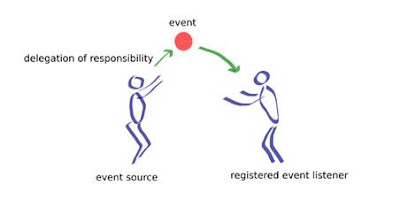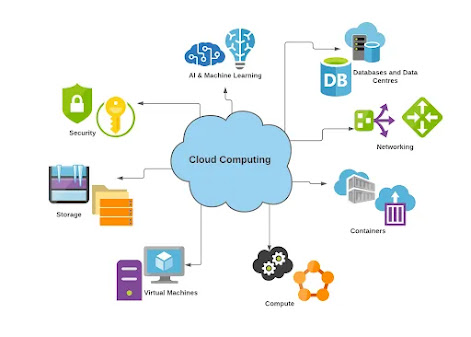Ethical Hacking
What is Ethical Hacking?
Ethical hacking and ethical hacker are
terms used to describe hacking performed by a company or individual
to help identify potential threats on a computer or network. An ethical hacker
attempts to bypass system security and search for any weak points that could be
exploited by malicious hackers. This information is then used by the
organization to improve the system security, in an effort to minimize or
eliminate any potential attacks.
What constitutes ethical hacking?
For hacking to be deemed
ethical, the hacker must obey the following rules:
1.
Expressed
(often written) permission to probe the network and attempt to identify
potential security risks.
2.
You
respect the individual's or company's privacy.
3.
You
close out your work, not leaving anything open for you or someone else to
exploit at a later time.
4.
You
let the software developer or hardware manufacturer know of any security
vulnerabilities you locate in their software or hardware, if not already known
by the company.
Types of Hacking
We can
segregate hacking into different categories, based on what is being hacked.
Here is a set of examples –
·
Website Hacking − Hacking a website means taking unauthorized control
over a web server and its associated software such as databases and other
interfaces.
·
Network Hacking − Hacking a network means gathering information about
a network by using tools like Telnet, NS lookup, Ping, Tracert, Netstat, etc.
with the intent to harm the network system and hamper its operation.
·
Email Hacking − It includes getting unauthorized access on an Email
account and using it without taking the consent of its owner.
·
Ethical Hacking − Ethical hacking involves finding weaknesses in a
computer or network system for testing purpose and finally getting them fixed.
·
Password Hacking − This is the process of recovering secret passwords
from data that has been stored in or transmitted by a computer system.
·
Computer Hacking − This is the process of stealing computer ID and
password by applying hacking methods and getting unauthorized access to a
computer system.
Advantages of Hacking
Hacking
is quite useful in the following scenarios −
·
To recover lost
information, especially in case you lost your password.
·
To perform
penetration testing to strengthen computer and network security.
·
To put adequate
preventative measures in place to prevent security breaches.
·
To have a
computer system that prevents malicious hackers from gaining access.
Disadvantages of Hacking
Hacking
is quite dangerous if it is done with harmful intent. It can cause −
·
Massive security
breach.
·
Unauthorized
system access on private information.
·
Privacy
violation.
·
Hampering system
operation.
·
Denial of service
attacks.
·
Malicious attack
on the system.
Purpose of Hacking
There
could be various positive and negative intentions behind performing hacking
activities. Here is a list of some probable reasons why people indulge in
hacking activities −
·
Just for fun
·
Show-off
·
Steal important
information
·
Damaging the
system
·
Hampering privacy
·
Money extortion
·
System security
testing
·
To break policy
compliance
Top Indian
Hackers
1.
Saket Modi
Saket
has been awarded the title of "Indian Ambassador of Cyber Security in
Education" at the National Education Awards 2013. Over last 5 years, he
along with his team have been conducting training and consultancy sessions
across the globe. At a young age, he has already trained more than 5000
individuals across 100 plus Colleges, Corporates & Government Departments.
Multiple Fortune 500 companies, Intelligence Agencies, Special Task Forces etc
have been availing his services from time to time. Saket is also an advisor to
reputed banks, oil & gas companies and e-commerce portals in designing and
deploying safe cyber architectures for their business. In 2016 he was a part of
both, Forbes India and Forbes Asia list of 30 under 30.
2.
Ankit Fadia
Ankit
Fadia is an independent computer security and digital intelligence
consultant with definitive experience in the field of Internet security based
out of the Silicon Valley in California, USA. He has authored 14
internationally best-selling books on numerous topics related to Computer
Security that have been widely appreciated by both professionals and industry
leaders the world over. He was one of eight people named MTV India's Youth Icon
of the Year for the year 2008.
3.
Sunny Vaghela
Sunny
Vaghela is one of the countries pioneer Information Security & Cyber Crime
Consultant. The young and dynamic personality of Sunny has not only assisted in
solving complex cyber crime cases but has also played an instrumental role in
creating awareness about information security and cyber crimes. During his
graduation at Nirma University he developed projects like SMS Based Control
System, Voice Recognition Based Control System exhibiting his sharp acumen for
technology.
4.
Pranav Mistry
Pranav
Mistry is a research assistant and a PhD candidate at MIT Media Lab. SixthSense
has recently attracted global attention. Among some of his previous work,
Pranav has invented Mouseless - an invisible computer mouse; intelligent sticky
notes that can be searched, located and can send reminders and messages; a pen
that can draw in 3D; and a public map that can act as Google of physical world.
Pranav has commercialized his invention, the sixth sense and SixthSense is now
being actively used at NASA. It is rumored that Facebook tried to acquire the
technology from Pranav for a reportedly $2 billion and 5% ownership of
Facebook, but Pranav decided to open source it instead.
5.
Manan Shah
Manan
Shah is an Indian entrepreneur and an ethical hacker. He is the founder and CEO
of Avalance, an online cyber security company that is involved in securing
government and enterprise digital setups. in 2016 he was a part of MSRC's top
100 Security Researcher in the world. In 2014 his a part of a television show
on MTV India called "MTV Webbed 2", which he co-hosted with Kritika
Kamra and sharing his thoughts on safe usage of Social Networks. at 17, he had
defaced the website of the world's largest Domain name registrar GoDaddy, and
godaddy offered him a job when informed about the defacement. He is also listed
in BlackBerry, Google, Facebook, Yahoo, Twitter, Paypal, Micorosft Hall of Fame
for his contributions to the organization.
6.
Vivek Ramchandran
Vivek
Ramachandran is a world renowned security researcher and evangelist. His
expertise includes computer and network security, exploit research, wireless
security, computer forensics, embedded systems security, compliance and
e-Governance. He is the author of the books – “Wireless Penetration Testing
using Backtrack” and “The Metasploit Megaprimer”, both up for worldwide release
in mid 2011. Vivek is a B.Tech from IIT Guwahati and an advisor to the computer
science department’s Security Lab. In 2006, Microsoft declared Vivek as one of
the winners of the Microsoft Security Shootout Contest held in India among an
estimated 65,000 participants.
7.
Trishneet Arora
Trishneet
Arora has authored for book “The Hacking Era” with several technical manuals
and given countless lectures, workshops and seminars throughout his career. He
trained IPS Officers, Crime Branch Cell, Banks and IT Experts. He solves
cyber crime cases with agencies, Trishneet Arora also known as Social
Networking Specialist, solved many cases like Fake Profiles, Tracing on
Facebook, Email Tracing and money fraud investigations. He is currently Chief
Technical Officer at TAC Security Solutions. Trishneet and Mr.Yashwant
Sinha were keynote speakers at Bussines Relation Conference, Gujarat
8.
Aseem Jakhar
Aseem
is a renowned security researcher with extensive experience in system
programming, security research and consulting. He has worked on various
security software including IBM ISS Proventia UTM appliance, Mirapoint
messaging/security appliance, anti-spam engine, anti-virus software, multicast
packet reflector, Transparent HTTPS proxy with captive portal, bayesian spam
filter to name a few. The focus and mission of null is advanced security
research, sharing information, responsible vulnerability disclosure and
assisting Govt./private organizations with security issues.His research
includes Linux remote thread injection, automated web application detection and
dynamic web filter.



Good Post. I like your blog. Thanks for Sharing
ReplyDeleteEthical Hacking Course in Delhi
nyc post with amzing information
ReplyDeleteVisit ethical hacking course online!
Very informative and Thanks for sharing.
ReplyDeleteEthical Hacking Course
This post is so helpfull and informative.keep updating with more information...
ReplyDeleteHacking Course in Mumbai
Hacking Course in Ahmedabad
Ethical Hacking Course in Kochi
Hacking Course in Trivandrum
Hacking Course in Kolkata